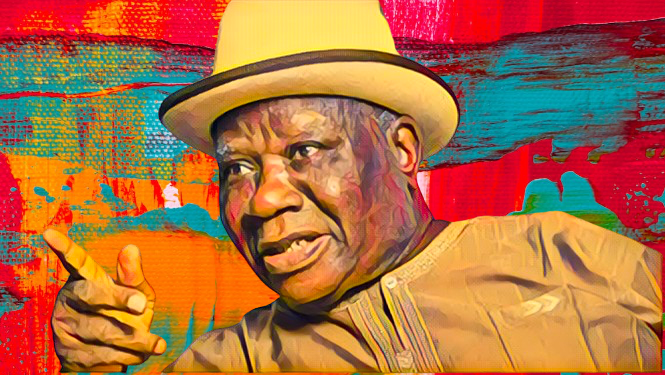Nigerian elder statesman Chief Edwin Clark has reignited calls for the Economic and Financial Crimes Commission (EFCC) to revisit and prosecute long-stalled corruption cases against prominent politicians. In a letter to EFCC chairman Olanipekun Olukoyede, Chief Clark emphasized the urgency of tackling these high-profile cases. He believes a renewed focus on prosecuting past corruption is crucial for the success of President Bola Tinubu’s anti-graft agenda.
Concerns Over Unfinished Business and Selective Justice
Chief Clark expressed deep concern over the pervasiveness of corruption in Nigeria. He stated that corruption has become “alarmingly commonplace” and lamented its infiltration into “every facet of our daily lives.” To address this, he urged the EFCC to prioritize investigations into all former governors, especially those suspected of misappropriating state funds. He specifically mentioned the case of former Kogi State Governor Yahaya Bello, who is facing corruption allegations.
The elder statesman further criticized what he perceives as the selective application of justice. He highlighted the case of Senator Orji Uzor Kalu, who was convicted on corruption charges in 2019 but later released due to a Supreme Court ruling on his co-defendant’s case. Chief Clark questioned why the charges against Senator Kalu himself haven’t been retried, raising concerns about a potential lack of fairness in the justice system.
Recommendations for a More Effective Anti-Corruption Strategy
Chief Clark proposed a series of actions for the EFCC to take in its fight against corruption:
- Reopen Stalled Cases: The EFCC should prioritize the reopening of investigations and prosecutions in stalled corruption cases involving former governors. These cases have been languishing in the court system for years, and Chief Clark believes they deserve renewed attention.
- Investigate Current and Former Officials: The EFCC should also investigate allegations of corruption against current and former government officials mentioned in Chief Clark’s letter. This broader approach demonstrates a commitment to tackling corruption across the board, regardless of political affiliation.
- Expedite Trials: Chief Clark emphasized the need for swift trials in corruption cases. The current delays, he argued, allow opportunities for manipulation and weaken public confidence in the justice system. The EFCC should work with the judiciary to streamline procedures and ensure timely resolution of corruption cases.
- Special Courts for High-Profile Cases: Chief Clark proposed the establishment of special courts dedicated to handling high-profile corruption cases. These courts would have the resources and expertise to handle complex cases efficiently, potentially leading to faster convictions and a stronger deterrent effect.
A Nation Divided on Anti-Corruption Efforts
Chief Clark’s call to action reflects the ongoing debate about corruption in Nigeria. Public frustration with graft, particularly within the political class, is simmering. While some Nigerians remain skeptical about the effectiveness of anti-corruption efforts, others see a renewed focus on prosecuting past cases as a positive step. The way the EFCC responds to these demands will be closely monitored in the coming months. President Tinubu’s administration faces the challenge of demonstrating a genuine commitment to tackling corruption and delivering on its anti-graft promises.
Source: Vanguard



